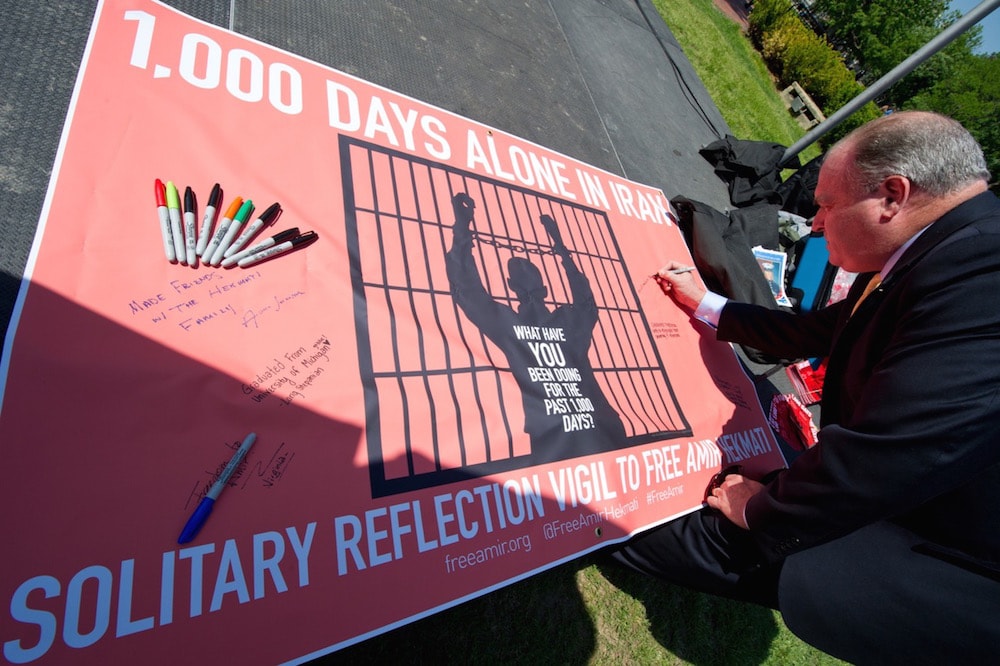These leaked videos offer a glimpse of what happens behind bars in Iran, but they are likely the tip of the iceberg, says Human Rights Watch.
This statement was originally published on hrw.org on 26 August 2021.
By Tara Sepehri Far, Iran Researcher
This week, apparently hacked videos of surveillance cameras in Iran’s Evin prison, in the capital Tehran, have confirmed many of the patterns of abusive treatment and violations of due process human rights groups have documented for decades. These videos appear to be from wards under the supervision of Iran’s prisons office and appear to show guards beating or otherwise abusing prisoners, as well as several incidents of inmate assaults against other inmates and prisoners self-harming without apparent intervention by prison officials.
For nearly two decades, authorities have prohibited independent monitors to visit Iranian prisons. They have refused to meaningfully investigate allegations of violations, and have prosecuted prisoners who reported being tortured. Despite these restrictions, rights groups and activists imprisoned for their peaceful activism continue to report on the systematic due process and torture violations in Iranian prisoners.
On August 24, faced with undeniable evidence, Mohammad Mehdi Haj Hosseini, the head of the Prisons Office apologized and promised to investigate abuses and prevent further violations. But it is difficult to believe him. In the past three years alone, at least five prisoners have died in suspicious circumstances, and authorities have failed to conduct a transparent investigation or hold anyone accountable. In at least two cases, authorities charged people who reported torture or mistreatment in prison.
These leaked videos offer a glimpse of what happens behind bars in Iran, but they are likely the tip of the iceberg. They do not include footage from two prison wards controlled by Iran’s brutal intelligence agencies, where political prisoners often face serious abuse, including prolonged solitary confinement, use of blindfolds, and torture. According to prisoners’ accounts, Evin prison, where most high-profile detainees are kept, actually has a higher standard of hygiene and access to medical care compared to other prisons, especially those far from the capital.
If there is a shred of sincerity in authorities’ usually empty promises, they should at minimum drop all charges against prisoners for reporting abuse. They should invite prisoners who have been subjected to abuse to file a complaint and allow an impartial commission from respected human rights lawyers on the ground to investigate prisoners’ treatment by allowing them to visit Evin prison and review the complete video footage.



